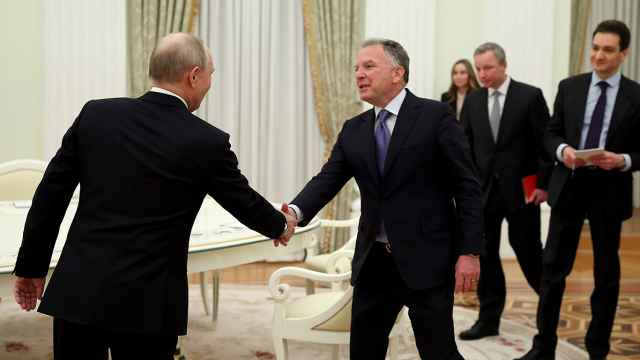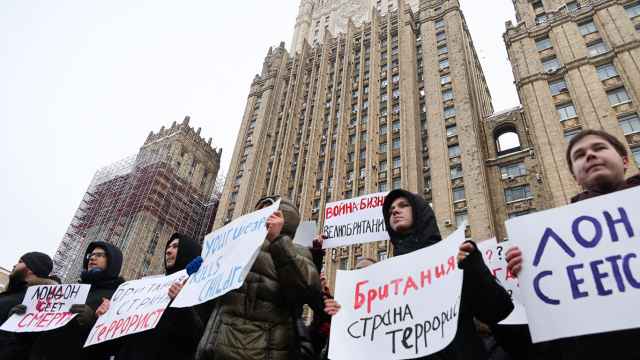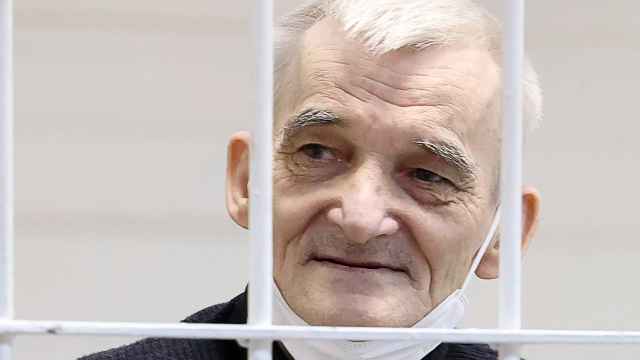In the 1990s, I got to know a little boy named Vanya in one of the Moscow orphanages for infant children. Vanya was a talkative boy, but he was in a room of children who never spoke. He was a voice in the silence. One day my wife Sarah discovered he had disappeared. He had been transferred to a mental asylum.
If his conditions in the orphanage were tragic, his new place was hellish. He was kept naked all day in a cot without sheets. It was a place where he would eventually die.
The director of the orphanage, a God-fearing but ineffectual woman, knew that a terrible wrong had been done to Vanya, but with his official diagnosis of "idiocy," there was no other place for him to go. Rather bizarrely, she begged my wife to get him out. With the help of some publicity from me and the selfless actions of Russian children's rights activists, Vanya was freed from his prison. Through a series of extraordinary events, Vanya was adopted by a U.S. parent.
A lot has changed since those days. Vanya lives in Pennsylvania, where he goes to college, and he and I have written his story in a book titled "The Boy from Baby House 10."
Even more has changed in Russia since Vanya was taken to the U.S. It is now officially accepted that warehousing children with minor physical disabilities is wrong and that children, wherever possible, should be with families. The orphanages and internats which were squalid and wretched in the 1990s are now well-funded, so much so that there is pressure from the orphanage administrators to keep them open and to attract more orphans for whom the institutions receive per capita funding. At the same time, however, an increasing number of Russians understand that keeping infants in institutions stunts them intellectually, emotionally and physically.
Most encouraging is that grassroots organizations are spreading throughout Russia to support at-risk mothers who otherwise would be persuaded to give up their children to the state.
Amid all this progress, we now have a political slanging match about U.S. adoptions of Russian children. The flow of Russian children to the United States, which was in decline in any case, was stopped by the State Duma in retaliation for the U.S. Magnitsky Act, under which some Russian officials accused of corruption are banned from entering the U.S..
The children's rights ombudsman, Pavel Astakhov, who earlier negotiated an adoption agreement with the U.S., now says that all international adoptions should be banned. Adoptive parents, he says, are child abusers and pedophiles, and the whole child adoption trade is riddled with corruption. Russia's outrage is disingenuous.
The irony about Russian orphans is that, in reality, there are almost no orphans as such in the country. At least 80 percent of the so-called orphans have at least one living parent. Their parents have abandoned them, or been deprived of parental rights because of parental alcoholism, drug use or child abuse. They may be called "social orphans," but it clarifies the debate if you eliminate this emotive word from the lexicon.
Russia's "orphan problem" would be dramatically reduced if mothers had more help from the state. But it would be far better to start by trying to keep these children with their birth mothers. However, that will take decades, requiring a different social work culture and training of new staff and a new method of welfare payments. It costs about $1,500 per month to provide for a toddler in state institutions in the provinces and much more in Moscow. It would be wiser to give these funds to foster families and adoptive parents. But this would require a revolution in government thinking and would entail a large loss of patronage for the orphanage bureaucracy.
Americans are not totally blameless. The death of at least 19 Russian adopted children at the hands of their adoptive parents testifies to the fact that it is too easy to adopt in the U.S. Adoption requirements vary from state to state, but it is clear that parental checks are not nearly so intrusive as in European countries. Most U.S. adoptive parents only want to provide a loving home, but some fail to realize that a child from an institution who has never bonded with an adult may test their love to destruction, even by trying to burning the house down. Both children and parents may need more professional help than is available.
Finally, if it is wrong to send children to the U.S., then international adoption is wrong in principle. It may sound odd coming from someone who facilitated Vanya's move to the U.S. But there seemed no option for him in Russia at the time. Now it is just possible to imagine a future for him in Moscow.
It is time to build on this progress. Abandoned children are an exclusively Russian problem, and Russia must find its own solution without having the option of exporting them to more prosperous countries. That is where the debate seems to be heading. The painful fact remains, however, that there are clearly some children, particularly those with mental and physical disabilities, who will never find adoptive or foster families in Russia today. Why should they should not be allowed to find loving parents in foreign countries?
Russia has an acute problem of low birth rate, which the government is addressing by paying mothers to have more children and giving them other benefits, such as free holidays. This is a good start, but it has to go further. The policy will work only if the state shows that it values every child, and appreciates the parents' investment of time, money and energy. That means that the state should try to help every mother be a good parent and help every child to have a home.
For all the Cold War rhetoric, it is no bad thing that international adoption is being discussed now. The state institutionalization of children through orphanages and internats is a sad leftover from the past. Natalia Vodianova, a model and philanthropist who has a sister with cerebral palsy and is director of the charity Naked Heart Foundation, perhaps put it best: "You cannot build a bright future for Russia unless you sort out those issues left over from the Soviet era."
Alan Philps is author of "The Boy from Baby House 10."
A Message from The Moscow Times:
Dear readers,
We are facing unprecedented challenges. Russia's Prosecutor General's Office has designated The Moscow Times as an "undesirable" organization, criminalizing our work and putting our staff at risk of prosecution. This follows our earlier unjust labeling as a "foreign agent."
These actions are direct attempts to silence independent journalism in Russia. The authorities claim our work "discredits the decisions of the Russian leadership." We see things differently: we strive to provide accurate, unbiased reporting on Russia.
We, the journalists of The Moscow Times, refuse to be silenced. But to continue our work, we need your help.
Your support, no matter how small, makes a world of difference. If you can, please support us monthly starting from just $2. It's quick to set up, and every contribution makes a significant impact.
By supporting The Moscow Times, you're defending open, independent journalism in the face of repression. Thank you for standing with us.
Remind me later.






